What is Legionella?
Legionella pneumophila or, as it is more frequently known, Legionnaire’s Disease, is a potentially fatal form of pneumonia and everyone is susceptible to infection. It is a bacteria readily found in natural water sources but usually harmless as the numbers of bacteria commonly found in natural water sources is low. Additionally the conditions found in these sources are unlikely to lead to infection.
When does it become dangerous?
Legionella becomes dangerous to us when conditions are right for the bacteria to breed. A key part in encouraging growth of the bacteria is water temperature, with temperatures between 20-45˚ Celsius ideal for growth.
Infection is usually caused by inhaling small water droplets known as aerosols, which is why showerheads are a prevailing source of Legionnaire’s Disease. Testing these sources for the bacteria forms a key part of regular testing programmes.
When water is stored at temperatures of 20-45˚ Celsius, it becomes an ideal growth environment for Legionella, and presents potential for infection. For this reason the use of, and recirculation of stored water should be avoided, and assessing these areas is essential in a regular testing programme.
Legionella bacteria will also breeds particularly well where deposits such as rust, sludge, scale and other organic matter are present in water systems. A Risk Assessment by a professional Risk Assessor will help you determine if these deposits are present, this along with any other areas of concern within your water system.
Who is at risk?
Everyone is at risk of infection. However, the risk of infection increases for people who are or have:
- Smokers
- Heavy drinkers
- Over 45 years old
- Chronic respiratory or lung disease
- Diabetes
- Kidney disease
- Heart disease
- An impaired immune system
What are your responsibilities?
You are responsible for the health, safety and welfare of your employees or any other person(s) in your care (self employed persons and/or tenants). Your duties under the Health & Safety at Work (HSW) Act and the Control of Substances Hazardous to Health (COSHH) law apply to the risks of exposure to Legionella bacteria. Policing of this legislation is overseen by the Health & Safety Executive (HSE).
The HSE has issued an Approved Code of Practice (ACoP) for the guidance on the regulations and legislation, specifically for Legionnaires Disease. This code of practice is commonly known as L8 and is available for purchase from the HSE website.
L8 summarises the regulation of preventing or controlling the risk from exposure to Legionella bacteria as follows;
“These Regulations require employers to prevent, or where this is not reasonably practicable, adequately control, the exposure of any employees to substances hazardous to health. Employers are also required to maintain, examine and test control measures and, at suitable intervals review and, if necessary, revise those measures. They must also keep suitable records of examinations, tests and repairs of control measures.’
Section 3 of the HSW Act requires employers to ensure that non employees who may be affected by work activities are not exposed to risks to their health and safety. Additionally Section 4 of the same Act places a duty on anyone responsible for the workplace to ensure that the premises do not endanger people using them.
Although it is not explicitly clear, a Landlord could be classified under this Act as self employed (“an individual who works for gain or reward otherwise than under a contract of employment, whether or not he himself employs others”) and a Tenant classified as a non employee. It is our opinion, therefore, that it would be prudent for Landlords to consider themselves governed by the legislation and regulation regarding the control of Legionella and should adhere to the guidance set out by the HSE.
What role do we play?
It is clear that the testing of water systems is of paramount importance to ensure, not only adherence to legislation and guidance, but also the health, safety and welfare of anyone in your care at all times.
We provide a service to ensure that this testing can be carried out in a simple and affordable way. We provide Testing Kits that contain easy to follow instructions (we also have an explainer video), sample bottles to collect samples and collection thereof by way of courier*. The samples are then tested in a UKAS accredited laboratory and the test results are Certificated in order to help you comply with current legislation and guidance. This whole service is included in our market leading price with nothing further to pay and no contractual obligation.
As our kits can be posted (we use Royal Mail as standard) we are able to offer our service to the whole of the UK. This has proved most beneficial to those in areas of the UK where access to this type of testing can be both sparse and, probably as a result, expensive.
The assessment of risk is another key area and one which we can help you with. We do not specialise in this area but work with preferred specialist partners who cover the whole of the UK. We offer introductions to our partners for a free no obligation quotation.
In short we believe we provide a vital role in helping businesses and individuals comply with current legislation and guidance regarding Legionella control and testing in a simple and affordable manner.
For more information
For knowledgeable advice and assistance please do not hesitate to contact the friendly team at Smartwater Testing.
